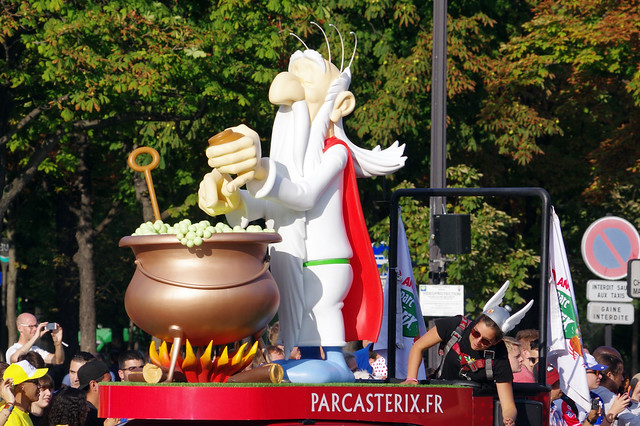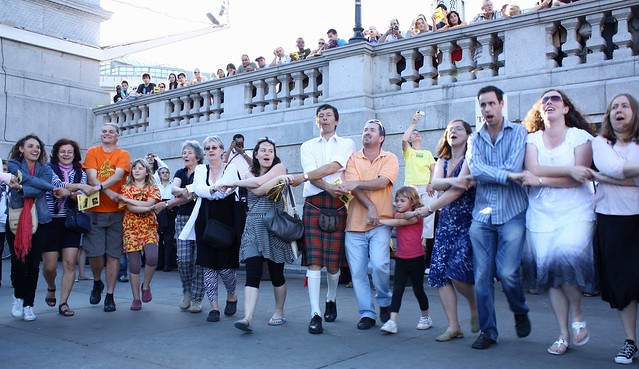The word Britain is used to refer to the island of Great Britain, and is also to the United Kingdom of Great Britain and Northern Ireland, or UK. As it’s the place I’ve lived most of my life, I thought I’d look into the origins of this word.
Britain comes from the Middle English Breteyn (Britain, Brittany), from the Old English Bryten/Breoton (Britain), from the Latin Britannia (the British Isles, Great Britain, the Roman province of Britain) – the land of the Britanni (Britons), from the Proto-Brythonic *Prɨdėn (Britain), from *Pritanī, which is possibly related to *Prɨdɨn (Picts), and the Ancient Greek Πρεττανική (Prettanikḗ – British Isles). The name Brittany comes from the same root [source].
Until the 1st century BC Britain was known as Albion in Latin, which comes from the Proto-Celtic *Albiū (luminous world, upper world, high mountain, alp, alpine pasture, Britain), from the Proto-Indo-European *albʰós (white) – possibly refering to the white chalk cliffs along the south coast of Britian [source].
After the Roman conquest of Britain in 43 AD, the name Britannia was used to refer to the Roman province of Britain, which consisted of what is now England and Wales and part of southern Scotland [source].
In Welsh, Britian is referred to as Ynys Prydain (The Island of Britain) or Prydain Fawr (Great Britian). These words, along with Prydyn (Scotland, (land of the) Picts), come from the same Proto-Brythonic root as Britain [source].
In Cornish, Britain is Breten and Great Britain is Breten Veur [source].
In Breton, Great Britain is Breizh-Veur and Brittany is Breizh.
The Irish name for Wales is An Bhreatain Bheag (“Little Britain”), while Great Britain is An Bhreatain Mhór, and Brittany is An Bhriotáin [source].
In Scottish Gaelic, A’ Bhreatainn Bheag is Brittany, Wales is a’ Chuimrigh, which comes from the Welsh name for Wales, Cymru and Great Britain is A’ Bhreatainn Mhór [source].









